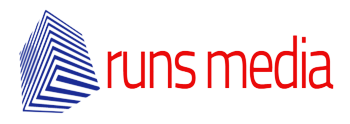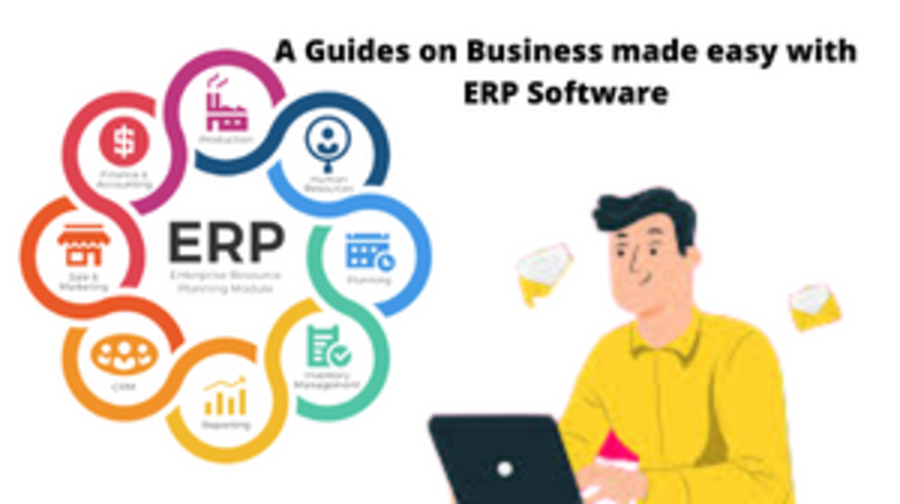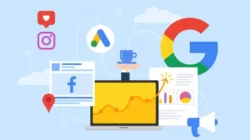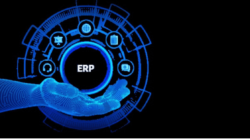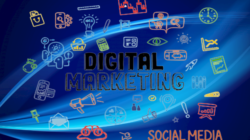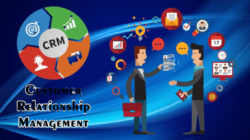What is an ERP Software?
In short, Enterprise Resource Planning or ERP Software Software is a set of software that functions to manage and integrate various operational activities in a business. Implementing an ERP Software for a company can be a major undertaking that can take years. As a result of the complexity and scale of ERP Software, only a few companies are interested and able to use diversified physical and financial resources and risk developing in-house ERP Softwares.
So that this ERP Software can increase the effectiveness of the company and provide more services to consumers, which in turn can generate added value and provide maximum benefits for all interested parties (stakeholders). Initially, ERP Softwares were software that was mostly used by large-scale enterprises (enterprises), but now it is also popular among SMEs. In this article, we will discuss understanding ERP software in more detail, complete with a brief history, types, functions of ERP for your business, as well as a calculation scheme so that you get a price picture.
Understanding ERP Softwares are enterprise resource planning systems and software packages used by companies to manage their daily business activities, such as financial management, procurement, production, projects, human resources, and others. Amidst the many choices of ERP software, companies can tailor their needs before choosing the best ERP software for their business.
An ERP Software is an application that can facilitate business with real-time and accurate information, so that you can make good business decisions based on the data generated. By collecting transaction data together from multiple sources, ERP Softwares prevent data duplication by providing data integrity.
The term ERP was coined in 1990 by the Gartner Group. However, this concept has actually been around since the 1960s. At the time, this concept was only applied to inventory and control management in the manufacturing sector.
Software developers create programs to monitor inventory, balance reconciliation, and report status. In the 1970s, this program evolved into material requirements planning (MRP) for scheduling production processes.
Entering the 80s, MRP was developed to include more manufacturing processes, thus changing its name to MRP-II or material resource planning. By 1990, this system had more functions beyond inventory management and other operational processes.
In recent years, ERP Software functions have shifted to other back-office functions such as finance, machinery, project management, and human resources. In this year many companies began to use the term ERP.
Along with the emergence of Y2K computer problems and the imminent introduction of the euro, companies in the 1990s rushed to update their existing systems. Many of them also choose to completely change their system by adopting an ERP solution.
Then, in 1998, NetSuite was founded, with the goal of creating a system that could be used across the enterprise and could be operated over the Internet. In the 2000s, the Gartner Group re-developed ERP by publishing ERP II.
This system is the first cloud-based enterprise resource planning software. This system offers a high degree of flexibility, because it can exceed regional and time boundaries (as long as it is connected to the internet).
Now SaaS (Software-A-Service) ERP Softwares are increasingly being attracted by various businesses. Some of them are SME businesses because of their high level of mobility and more affordable prices.
What industries can use ERP?
Although the original purpose of ERP Software design was for the manufacturing industry, ERP software has now been developed into various other sectors such as:
Services & Consulting such as insurance, technology, financial services, etc
Education
Transportation
Retail, Wholesale & SuperMarket ERP
Real Estate
ERP Construction, Projects & Infrastructure Development
Food & Beverage ERP
Tourism such as Restaurant, Hospitality or Lodging
Health like Hospital & Medicine Manufacturing
Mining ERP
Plantation ERP
Export – Import because it requires IT inventory for Bonded Zone
Government to manage purchases of goods procurement or other administration
Every company or organization of course manages employees, buys products or services, sells or distributes things, and records finances. ERP Softwares are applications that allow companies from all industries to integrate and manage all these basic functions.
Using ERP for your business
Have you ever wondered why so many businesses and companies are looking for ERP solutions? What do they need? They will not consider implementing an ERP Software if this software has no benefits for their business.
According to last year’s statistical data, there are 81 percent of companies that have successfully implemented ERP applications in their companies.
The following are some of the benefits that you can get by implementing ERP software in your company.
- Optimizing efficiency
An ERP Software is an application that serves to simplify various operational activities that require a lot of time and energy. Complex tasks such as checking inventory, division of tasks to employees, monitoring working hours, payroll, making financial reports, all can be done automatically with the ERP module offered.
With reduced manual work, teams can focus more on their work without having to distract other teams. For example, the marketing team can monitor daily web traffic reports without having to request it from the IT team, or the accounting team can generate sales-related reports without having to rely on the sales manager.
ERP Software is a provider of fast data access for managers and stakeholders in the company. Decision makers can monitor key performance indicators across the company only through dashboards. All required data can be produced in real time.
- Improve collaboration
Collaboration between departments is an important and often needed part of business. Integrated ERP software is a dividing wall between departments. With data entered into a centralized and consistent ERP Software, one department can access data from other departments. SaaS or cloud-based ERP can expand collaboration between Teams across all branches of the company via the Internet.
- Save operational costs
The application of ERP applications to companies also helps save operational costs. Since most operations are automated, various disturbances, problems, and breakdowns can be properly anticipated.
All complex work can be completed faster so this can reduce waiting time. Companies can also reduce labor costs, because the ERP function can take over a variety of manual work.
- Improve data security
An ERP Software is software that has firewalls and restriction controls to prevent data breaches. All data is stored in a centralized system so that access points can be closely monitored and their security maintained. Admins who are responsible for managing company data can grant limited access rights to employees.
For example, HR managers can hide important data only for themselves and stakeholders while giving employees access to view their own financial data.
Admins can also quickly terminate terminated employee access and grant access rights to new employees. ERP solutions also show user activity, so admins can easily identify unauthorized actions or suspicious activity patterns in the system.
- Make accurate business forecasts
One of the most important things for business progress is the right forecast. Stakeholders in companies rely on reports to make forecasts that will ultimately influence the decisions they make. Therefore, it is very important for businesses to get real-time, complete and consistent reports. Solutions for ERP Softwares are tools that can facilitate all of that.
Reports in ERP Softwares use advanced filters and analytics that can filter out inconsistencies in the data. This system also ensures that the data obtained is produced at the correctness. Accurate business reports will assist stakeholders in making the best decisions for their business.
When to decide to use ERP software?
Every business is unique and has different challenges. The question now is, when should you decide to use an ERP application in your company? The following are some of the parameters that indicate that you should consider deploying ERP (Enterprise Resource Planning Software) as soon as possible.
Your staff is wasting too much time on tasks that shouldn’t be done manually
Lack of quick and easy access to the data you need to make business decisions
There is cooperation with various vendors or suppliers from various regions
Your business has many different applications that have been applied to your business over the years, but all of them are not connected to each other
Business owners have a hard time monitoring your inventory levels on a daily basis
As a business owner, you spend too much time finding information, trying to increase productivity and efficiency, and integrating various functions within your business
Employees have difficulty collaborating or sharing information with each other
It’s hard to access important business data and information when you’re out of the office
You are often late in solving problems; In other words, you cannot be proactive in identifying problems in your business processes
If most of the points raised above are relevant to you, then this means it’s time for you to quickly find the right ERP vendor.
Types of ERP Software Development are:
There are several types of ERP development that are trending in the market today. So that you are not confused when an ERP vendor offers you this solution, try to learn the three popular types of ERP development below.
On-site ERP software is
It is also called on-site ERP or conventional ERP. This ERP Software is installed locally on hardware and computer servers managed by IT staff. So, the company manages this ERP Software in-house.
The initial investment for conventional ERP is quite high, because the company needs to buy hardware such as servers to run the system. The company should also employ IT staff who are responsible for managing and maintaining the system.
In addition, upgrading the system also requires a lot of effort, as the team has to deploy it on multiple computers and implement various customizations and integrations with the systems that have been used previously.
Although it requires a lot of money and effort, conventional ERP solutions are still in great demand because these systems allow companies to handle their own data to ensure security.
In addition, the system also offers convenience for customization and provides more control over the implementation process. Conventional ERP solutions are usually more popular among large-scale companies.
ERP cloud software is
What is a cloud-based ERP Software? Often referred to as a SaaS system or ERP is a type of ERP that allows companies to manage data centrally through an internet connection. The vendor or ERP company is responsible for the smooth running of this system and watching it through the backend. Users only need a username and password to be able to access the system from a browser.
The investment cost for a cloud ERP Software is much lower when compared to the investment cost of a conventional ERP. However, users incur an overhead (usually monthly) that must be paid for as long as they use the system. To find out more, you can download the ERP software pricing scheme from HashMicro. This ERP Software is more popular among small and medium sized businesses. The advantages of the Cloud ERP Software are as follows:
Faster deployment
Unlike on-premises ERP, Cloud ERP does not require additional hardware so companies don’t have to waste time procuring and installing IT infrastructure. The installation time of a cloud-based ERP usually only takes 3-6 months while a conventional ERP solution takes at least 1 year.
Update & System Upgrade regularly
The cloud-based ERP Software is constantly being upgraded by the provider and you can rest assured that you are always using the latest and most up-to-date version of the ERP Software. Meanwhile, if you are using a conventional ERP Software, updates and upgrades must be done by removing the customizations that have been used previously.
High mobility
Cloud ERP solutions allow you to monitor your business anywhere and anytime. Since this type of ERP is based on a website, its users can access the system via supported browsers. You don’t have to come to the office to see all the data you want, because you can access it from your phone or tablet.
Hybrid ERP software is
A hybrid ERP Software is a combination of on-premise ERP and cloud ERP and ERP solutions. This type of ERP Software serves as a logical solution for many companies looking to upgrade their current conventional ERP Software without having to change it.
Apart from separating functions between conventional and cloud-based ERP, hybrid ERP also helps companies to integrate or add functionality to their existing ERP Softwares with minimum costs.
Common Modules in ERP Software
You have understood what an ERP Software is and its types of development and use. The explanation of the ERP module is usually listed in the ERP book which can be a company’s initial understanding of ERP software. Now you need to know what modules are usually in an ERP Software in general.
Accounting (Accounting)
The automatic accounting system functions to manage the incoming and outgoing cash flows in the company. ERP This module also helps companies handle various accounting transactions such as expenses, balance sheets, general ledger, bank reconciliation, budgeting, tax management, and others. You can create company financial reports with just a few clicks on this ERP module.
CRM
The ERP CRM (Customer Relationship Management) module helps improve sales performance through better customer service and building healthy relationships with customers. This ERP module also helps companies manage and track prospect and customer information such as communication history, calls, meetings, transaction data they have made, contract duration, and more.
HRM
The HRM (Human Resource Management) module helps improve the efficiency of the HR department or HR department in the company. ERP This module helps manage employee information such as performance appraisals, job descriptions, skills, attendance, leave, and more. Payroll management is one of the important sub-modules in the HRM system that functions to manage salaries, travel expenses, and return costs.
Sales (Sales)
ERP This module functions to handle sales workflows such as sales reports, offer proposals (RFP & RFQ), sales orders, and invoices. If the sales system is integrated with CRM, Accounting & Inventory System, it can be done that you can drive more sales with accurate data of estimated future sales.
Sales forecasts are very important for companies involved in trading or retail. It is impossible to predict how much demand will be every day, it is necessary to estimate the probability of changing demand.
Of course, with a qualifying sales system, this will help you prepare for the possible number of stock SKUs that must be available in each seasonal request (seasonal demand).
Inventory (inventory)
The inventory module is useful for tracking and managing stock in the company including monitoring inventory levels, scheduling replenishment, forecasting and creating inventory reports. A good ERP Software allows integration of inventory modules with barcodes or SKU scanners. The inventory module will be more effective if it is integrated with the purchasing module.
Purchase (purchase)
This module manages the processes involved in the procurement of goods. This includes: supplier lists, supply demand and analysis, purchase orders, goods receipt records, and stock updates. This module can be integrated with the inventory module for more optimal stock procurement management.
Purchasing applications can of course also improve your company’s purchasing management by purchasing goods in advance without waiting for stock to run out. In addition, orders will be placed automatically when the stock reaches the minimum threshold. The presence of this application can also avoid losing ordered items that do not match the details because they are equipped with important documents when making transactions.
Manufacturing (manufacturing)
This module serves to improve efficiency in the manufacturing process in business, such as; Product planning, material routing, daily production monitoring and creating Bill of Materials. A good ERP Software allows manufacturing modules to be integrated with barcodes or RFID scanners.
Another advantage of a flexible manufacturing system is that manufacturers can customize existing features or even add various modules as they require. For example, such as purchasing, accounting, human resource management, supply chain management, and others modules. That way, you can more easily measure the overall effectiveness of the equipment at any time through real-time reporting tools.
Consider these factors when choosing ERP software are:
You already know what ERP programs and ERP software functions for your business. Now you should know what factors you need to consider before using an ERP program. Here are some things to consider:
- Your Business Needs
Every company has different needs. The challenges faced by your company can be different from other companies. Good ERP software can be tailored to the unique needs of each business.
Make sure you understand what your business challenges are and what solutions you expect from the ERP Software of your choice. Explain all your requirements in detail to your vendor to get an ERP Software with specifications and features that suit your needs.
- Vendor Experience
Find detailed information about your ERP vendor, including their experience in providing ERP solutions for various businesses. Who are their clients? What is their industry? How long has the vendor been operating?
Ask for testimonials from each of their clients. If necessary, ask their clients directly about the benefits they have received from using the ERP software (including their relationship with the vendor and the services they get from the vendor).
- Support from vendors
When you talk to an ERP vendor or company, you should never forget to ask what kind of support they provide. Support is a very important element in every stage of the project, consisting of; Needs analysis, project planning, implementation, configuration, training and guidance, to post-implementation.
Make sure you can contact your vendor easily when your ERP Software has problems or when you have questions about how the system works.
- Ease of Integration and Customization
Good ERP software makes it easy for users to integrate and customize it. You may not need a lot of integration or customization right now, but your business needs can change at any time.
You can only add modules or even reduce them in the future. As your business gets bigger, its needs become more complex. So, make sure that your ERP software can easily scale your business.
- Implementation Process
One of the main factors that you need to consider when choosing an ERP application is the duration of its implementation. The amount of system customization usually affects the length of time for ERP software implementation.
The more adjustments, the longer the implementation process. Cloud-based ERP implementations tend to be faster and simpler than conventional ERP implementations. So think carefully about the type of ERP deployment that is more useful for your company.
- Budget calculation as needed
ERP software that offers lower costs can minimize your company’s expenses. But on the other hand, relatively inexpensive software may require a longer implementation process and the results can be less effective. However, if your company’s management needs are quite large, then your company also needs ERP software which of course meets the requirements.
Therefore, careful calculation of budget and requirements is one of the keys to success in choosing the best ERP. It is important for you to choose ERP software at a price that is comparable to the quality offered. So, don’t be too hasty in choosing an ERP and evaluate its performance carefully which also suits your company’s needs. You should find information about ERP software pricing schemes.
Conclusion
In the midst of increasingly fierce business competition like now, you must be able to keep up with various technology trends that are changing rapidly. Running your business with old or manual methods will only make your business lag behind others. If other business owners have automated their business processes.
